There are plenty of challenges in the Animal Health industry and in the Veterinary profession when it comes to finding qualified candidates.
A new hire who doesn’t work out for whatever reason is the last thing you want. As an integral part of an organisation’s personnel development and growth, retention is a critical part of the hiring process. In a tight market, losing employees is just as bad as not hiring them at all.
So what’s wrong and what can you do?
Soft skills are becoming more important for new hires
Leadership IQ conducts one of the world’s largest leadership training and employee engagement studies. New information was added to the “Why New Hires Fail” study by the firm recently. The following are some of the key findings:
- Newly hired employees fail within 18 months in 46% of cases
- The success rate of newly hired employees is only 19%
- Only 11% of hiring failures are caused by technical skills, while attitudes drive 89% of failures
- There were 82% of hiring managers who saw signs of a new hire’s failure
- It is estimated that only 15% of companies have defined what makes their top performers so special
- According to 56% of HR executives, fewer than half of their current employees have the right attitude
- Only 39% of companies believe their recruiting process represents their employment brand
- A mere 26% of companies regularly gather feedback from new hires about their recruitment process
Only 11% of hiring failures are caused by technical skills, according to the statistics above. For this study, technical skills are defined as “the functional or technical skills required to perform the job.” That means, of course, that in 89% of the cases, technical skills were not a factor in the employee not working out. What were the factors in those cases?
In the study, they were as follows:
- The ability to accept and implement feedback from bosses, colleagues, customers, and others (26%)
- Having an understanding and ability to manage one’s own emotions, as well as assessing the emotions of others (23%)
- The ability to motivate oneself to perform at a high level and achieve excellence in one’s career (17%)
- A person’s temperament (15%) is determined by their attitude and personality, according to the job’s requirements.
The fact that over one-quarter of new hires failed was attributed to the fact that they were not coachable. How do you define coachability? HuffPost.com describes it as “being open to feedback, able to take constructive criticism without taking it personally, and willing to improve yourself.”.
Coachability has been cited as one of the most important characteristics hiring managers look for in a new employee by scores of hiring managers over the past few years. According to HuffPost.com, active listening is part of being coachable. This is why it’s so sought after: it’s scarce.
There are several reasons listed above that do not involve technical skills, and these are known as soft skills. Communication skills refer to how well a person interacts with others. It is important to hire people who have a good soft skill set, regardless of whether they are in a leadership role.
Veterinary professionals interact not only with their colleagues, but also with the public. The more difficult it is for your new employees to interact well with pet owners, the less likely it is that they will perform well as employees and be successful.
In the animal health industry and the veterinary profession, soft skills are becoming increasingly important. The extent to which a candidate has excellent soft skills cannot be determined from a resume or job application.
These tools can be used to screen a candidate’s technical skills, but soft skills require more effort. To assess and evaluate candidates, hiring managers or practice owners need the soft skills they possess.
New hires should be assisted by a recruiter
Recruiting in this current environment can be challenging, as you may already know. By the numbers above, you can see that keeping those hires and ensuring their success is not an easy task.
As per the Leadership IQ study, attitude is the most important factor in why a new hire fails.
The difficulty in both attracting the best candidates and helping them succeed and contribute to the organisation underscores why it’s a good idea to hire a Veterinary or Animal Health recruiter.
At NSV – Veterinary Recruitment, we have placed the candidates you want to hire and can help you hire for everything, from technical skills to attitude.
Ultimately, you need to hire the best people possible who represent the “complete package.” That’s how you hire for success, and that’s how your new hires experience success.








